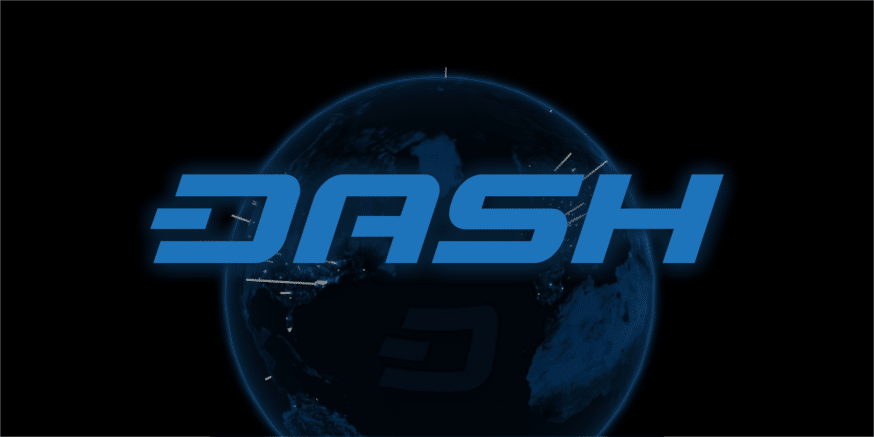Few cryptocurrency and blockchain projects in the space can compete with the progress and activity levels of the open-source blockchain-based payments solution Dash.
 We got a chance to connect with Ryan Taylor, the CEO of Dash Core Group Inc. that leads the development and maintenance of Dash. Taylor has over 15 years of experience in the intersection of financial services and technology.
We got a chance to connect with Ryan Taylor, the CEO of Dash Core Group Inc. that leads the development and maintenance of Dash. Taylor has over 15 years of experience in the intersection of financial services and technology.
Prior to joining Dash in 2016 as Director of Finance, Taylor was a hedge fund analyst focusing for a $20 billion investment firm in New York. He was also an Associate Partner at McKinsey & Company’s Business Technology Office in New York, where he worked with senior executive clients of the world’s biggest financial institutions.
In the following interview, Taylor shares his thoughts on the importance of stress-testing, scaling Dash past Bitcoin, and Dash’s next steps in a rapidly evolving landscape.
One of the core strengths of Dash is the community around it. What is the secret sauce to maintaining this positive vibe surrounding Dash?
The Dash community is well-known to be overwhelmingly inclusive and positive. It’s not just one thing that’s led to that, as many amazing people contribute to that atmosphere in large and small ways.
However, I really think that the clear vision we are articulating of becoming the ideal cryptocurrency payment network attracts like-minded individuals that share that vision. Having everyone aligned around the same goals really makes for a cohesive community.
A few weeks ago, Dash announced its the network successfully undertook a stress test with some impressive results. Can you share details with us?
The test was done by the Dash community members through the use of a transaction tool that sent out batches of transactions. The Dash network experienced no detectable disruptions over the two days the experiment ran, and had well over a half-million transactions over a 24-hour period.
The network also experienced zero orphaned blocks, and due to the irregularity of the test in which thousands of transactions were sent at once, the mempool backlog of unconfirmed transactions reached a maximum of 3.2MB. The mempool size equaled under two blocks worth of data. This means that it would take the network five minutes to clear. Meanwhile, it would take Bitcoin forty minutes to clear a backlog of that size since their block interval takes 10 minutes to clear.
To top it off, the Dash network during the processing of high transaction volumes still had no detectable changes to the transaction fees, managing to keep median transaction costs well below one US cent.
How did the community manage to pull off initiating this without the developers getting wind of what was being planned?
It was a relatively simple tool, really. It required no coordination with developers. The Dash network is a permissionless network, so anyone willing to pay the fees is free to process as many transactions as they want. Once the community got hold of the tool, it just quickly became this viral thing to attempt to break the network. Obviously, it held up exceptionally well.
Dash previously said that its long-term scaling plan will increase up to about 40 times Bitcoin’s current capacity. Can you tell us any of the details about how this will be achieved?
ASU has recently released its research on block propagation in the Dash network and has determined a path to a minimum 10MB block sizes (the maximum amount they modeled) and identified graphene as a technology that could scale much further, though they have not yet been able to quantify a limit.
The implications for this research are huge. First, it means we can continue increasing block sizes and network capacity at least five times current capacity in the near term. It also means we will soon have forty times the capacity of the bitcoin network. We also have a credible path to scaling beyond that. These capacities are only possible on the Dash network thanks to its speed, which is approximately 100% faster than Bitcoin’s network at propagating blocks.
The stress test results showed average transaction fees of less than one cent. How does Dash manage to keep fees so low compared to Bitcoin, whilst still maintaining transaction speeds?
Unlike Bitcoin and other cryptocurrencies, Dash consists of a two-tier network. The second tier in Dash adds masternodes that perform different functions, including InstantSend, PrivateSend, and hosts the governance system.
Masternodes are very effective in preventing Sybil attacks and provide the operators of masternodes with payments, incentivizing them to operate on professionally run and managed hardware. This is what gives the Dash network its incredible speed and will enable it to perform about 4,000 transactions per second for a very low price.
In May there were reports that your Twitter and LinkedIn had been hacked. Did you ever find out who did it? How did you get back control?
Following the unauthorized access of my personal Twitter and LinkedIn accounts, I regained control of both accounts within about three hours. Immediately, I enlisted the support of a private cybersecurity firm to secure all of my accounts, which found no indication at all of any confidential or financial data being compromised. And most importantly, I can say that no Dash-related accounts or systems were compromised.
The compromise occurred due to a failure of a trusted third party to follow their own security protocols when the attacker used social engineering to impersonate me and was permitted to reset passwords. Unfortunately, we haven’t pinpointed who performed the hack, but we did file a cybercrime report with the FBI.
The whole incident was a good reminder that all of us need to ensure and encourage our trusted third party providers to properly adhere to security controls and to thoroughly verify user identities before releasing personal data or account access.
What are the most critical next steps for Dash on its current roadmap?
The Dash team has been working on launching Dash Evolution to provide millions of users around the world the ability to carry out instant, secure, and near fee-free transactions. Our goal of this project is to make Dash easier to use by providing a platform that enables many new capabilities, including new apps that have a similar Venmo or Paypal layouts where a user can send or receive money from his or her contact list.
We believe Evolution will be the payments system of the future by allowing users to store their accounts and data in the decentralized network as opposed to being forced to enter long cryptographic addresses.
We’re aiming to make cryptocurrency use on a daily basis more accessible for the average person who may not have a technical background or understanding of digital currencies. Just recently, we provided an updated official roadmap. And while no exact dates are set in place, we’re expecting to launch Evolution by the end of Q4.
Thank you!







